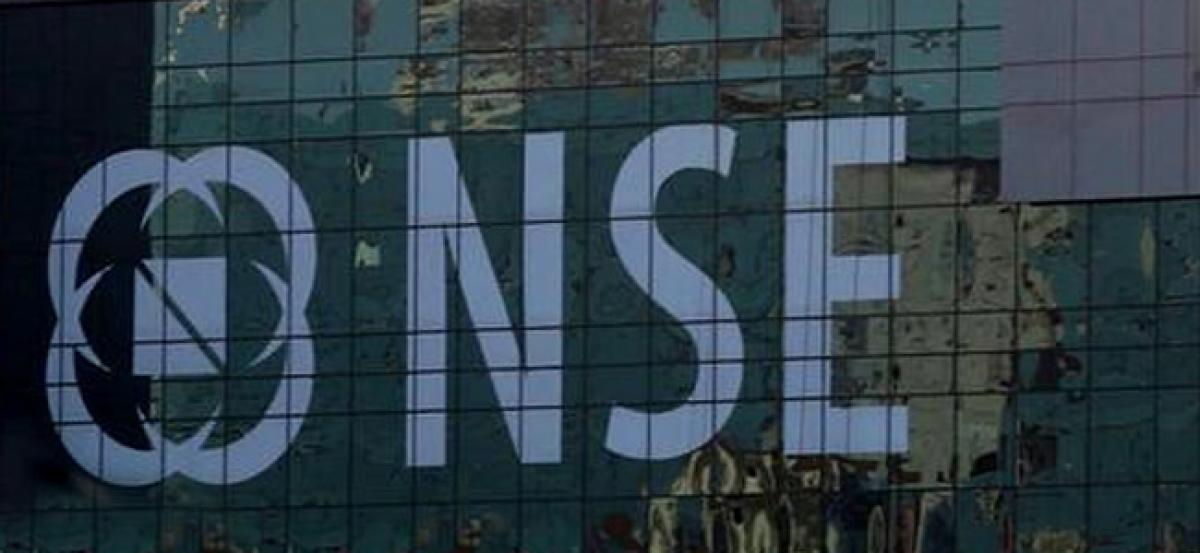Live
- VHP Karnataka Resolves to Oppose Alleged Land Encroachments Under Wakf Board
- Formula 1: Verstappen claims fourth drivers' title as Russell leads Mercedes 1-2 in Las Vegas
- Air quality in Kolkata, Howrah deteriorates
- IPL 2025 Auction: Aim is to make Punjab Kings one of the powerhouses, says head coach Ricky Ponting
- PM Modi to participate in ‘Odisha Parba 2024’ today
- Udupi MLA calls for joint survey to address parking issues
- Villages choke on chemical fumes
- 19 agritech soonicorns, 40 minicorns embracing emerging tech for biz growth: RBI paper
- Leopard rescued from well released into forest
- TDP Urges Centre for debate on key issues of AP in winter session
Just In

Indian stocks hit record highs and the rupee firmed on Tuesday as landslide regional election wins bolstered the government\'s reform agenda, while emerging stocks rose to near two-week highs.
LONDON: Indian stocks hit record highs and the rupee firmed on Tuesday as landslide regional election wins bolstered the government's reform agenda, while emerging stocks rose to near two-week highs.
MSCI's broad emerging equities index rose 0.3 percent with Russia and Korea among the outperformers, the latter closing up 0.8 percent at a more than 20-month high.
Markets have already priced in an interest rate rise when the U.S. Federal Reserve meets on Wednesday, and a pick up in growth is supporting riskier assets.
"We are seeing much better growth from emerging markets - both external and a little bit domestic," said Kaan Nazli, a senior economist at Neuberger Berman. "It is at the fastest pace in nearly three years, driven chiefly by Brazil, Russia and China."
The biggest gains on the day came in India, where stocks rose 1.8 percent to a record high in the first trading session since regional election results were announced, while the rupee firmed to 66.14 against the dollar, its strongest level since April last year.
Prime Minister Narendra Modi's big win in the key battleground state of Uttar Pradesh at the weekend cheered investors who see it giving the greenlight for more business-friendly reforms.
However, wholesale prices rose at a more-than-expected 6.55 percent year-on-year in February, suggesting the central bank may have to shift its accommodative policy stance.
"(This) supports our view that the Reserve Bank of India will have to reverse course and begin hiking interest rates much sooner than is generally expected," Shilan Shah, India economist at Capital Economics, said in a note.
Chinese mainland shares were flat after China's factory output and fixed asset investment grew more strongly than expected in the first two months of the year, although retail sales disappointed.
A stronger dollar put pressure on some currencies, with the Turkish lira initially down 0.4 percent after Ankara suspended high level diplomatic relations with the Netherlands in a row over political rallies.
"We have already seen some weakness since last week, which was a combination of the job numbers from the U.S. and general negative news from home in terms of these tensions," said Nazli, adding he would be watching for any developments with the refugee readmission agreement, which Turkey has threatened to scrap.
The South African rand fell 0.2 percent, with S&P Global Ratings reiterating its concerns about weak economic growth, political tensions and policy reforms.
The Polish zloty remained under pressure, trading near seven week lows against the euro, as a political spat over European Council President Donald Tusk escalated.
A Polish central banker said Poland may need to consider raising rates in the second half of the year to prevent accelerating inflation from discouraging savers. Consumer inflation numbers for February are out later today.
In the bond markets, Kuwait raised $8 billion for its debut international issue, with the book hitting $29 billion.
The five-year bond priced at 75 basis points over Treasuries and the 10-year at around 100 basis points over, which Simon Quijano-Evans, an emerging markets strategist at Legal & General Investment Management, said was in line with like-rated Qatar.
"One reason is the lowest oil break-even prices that Kuwait faces versus peers plus a slightly more flexible peg," he said in a note.

© 2024 Hyderabad Media House Limited/The Hans India. All rights reserved. Powered by hocalwire.com







